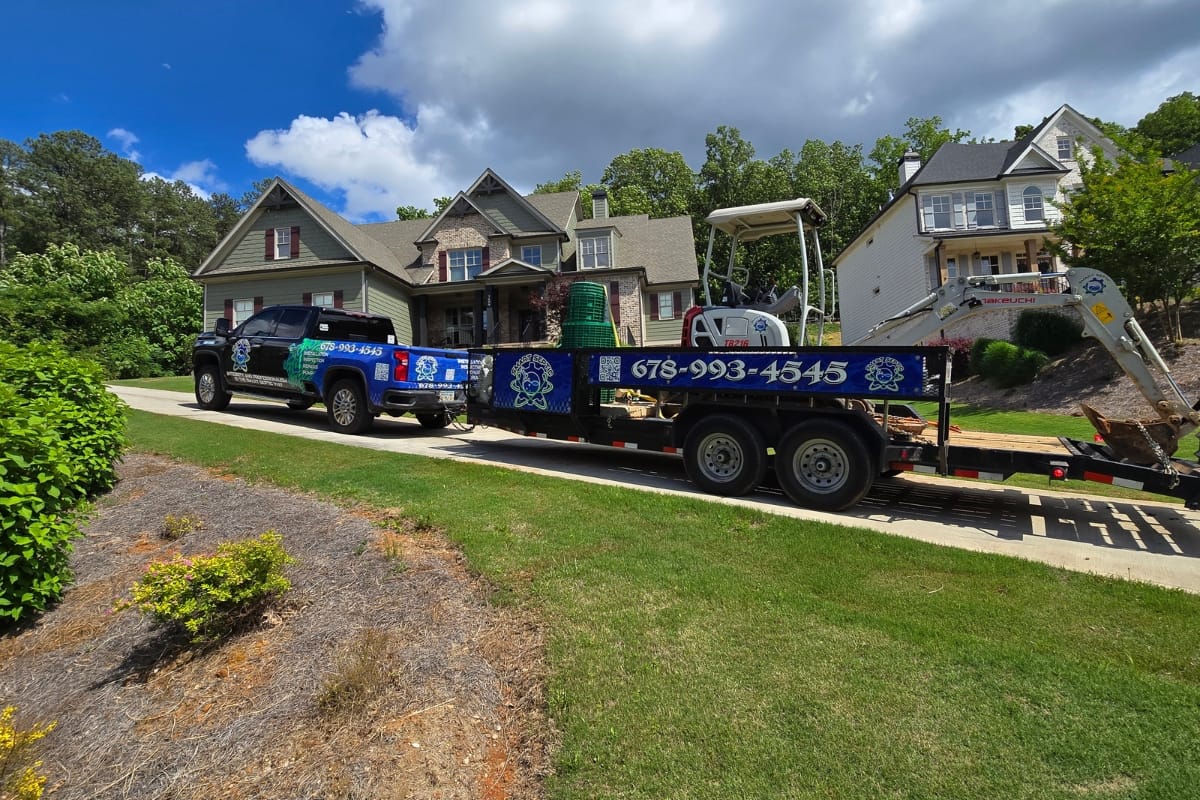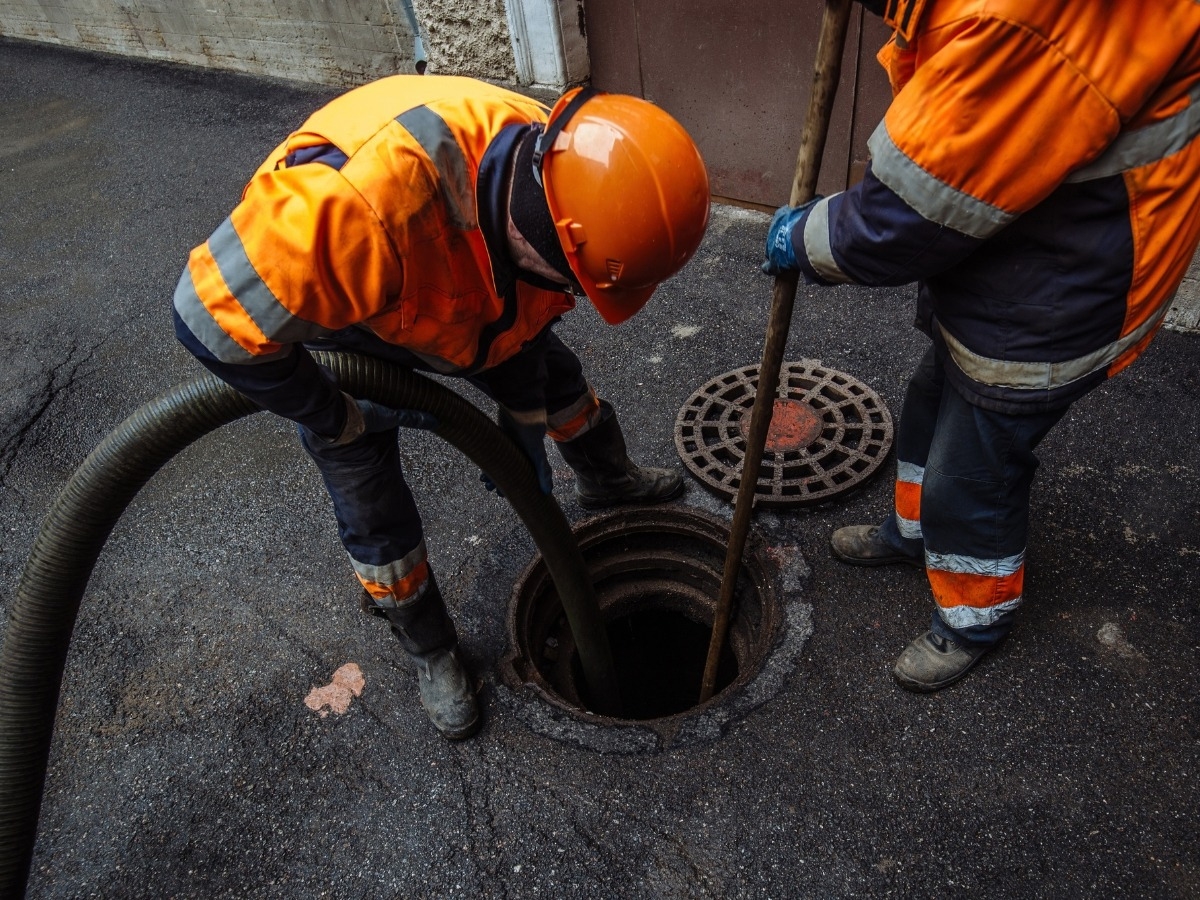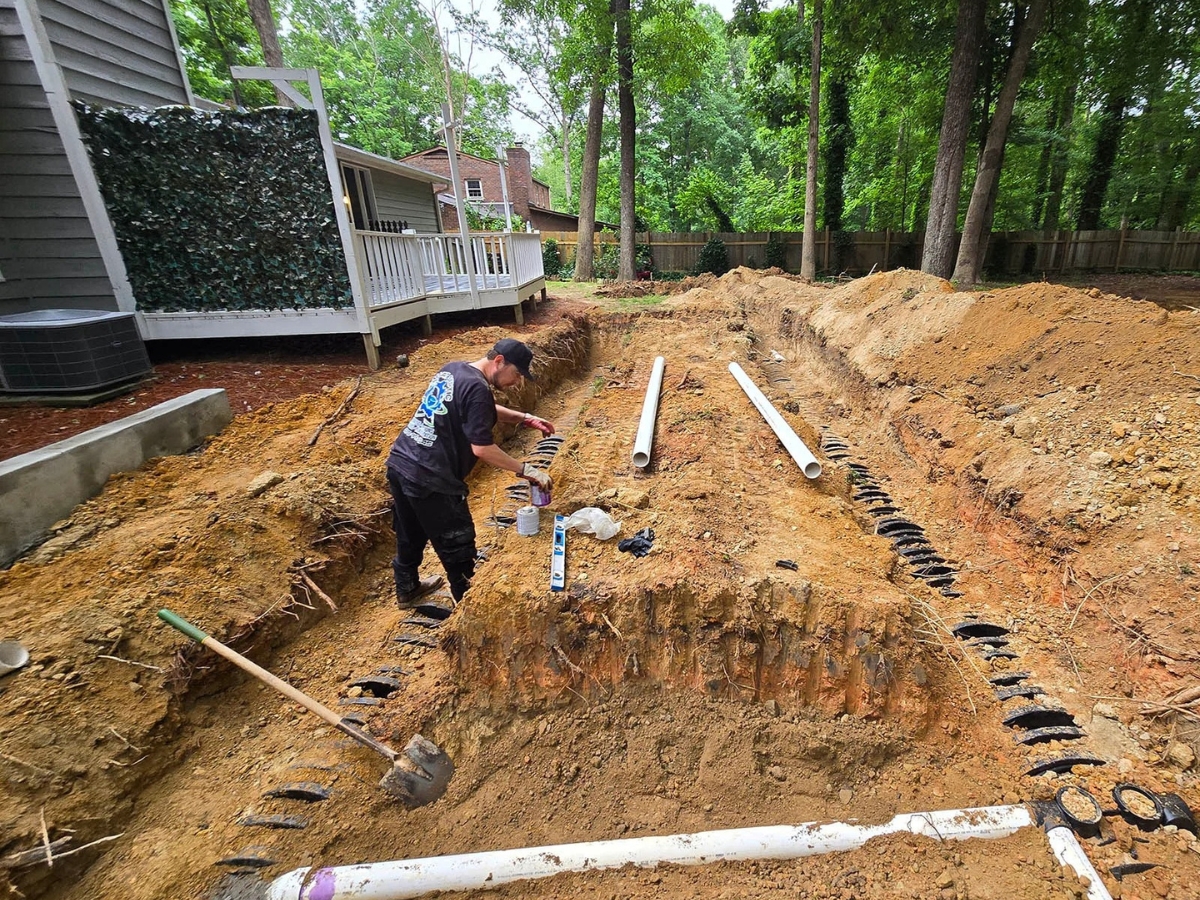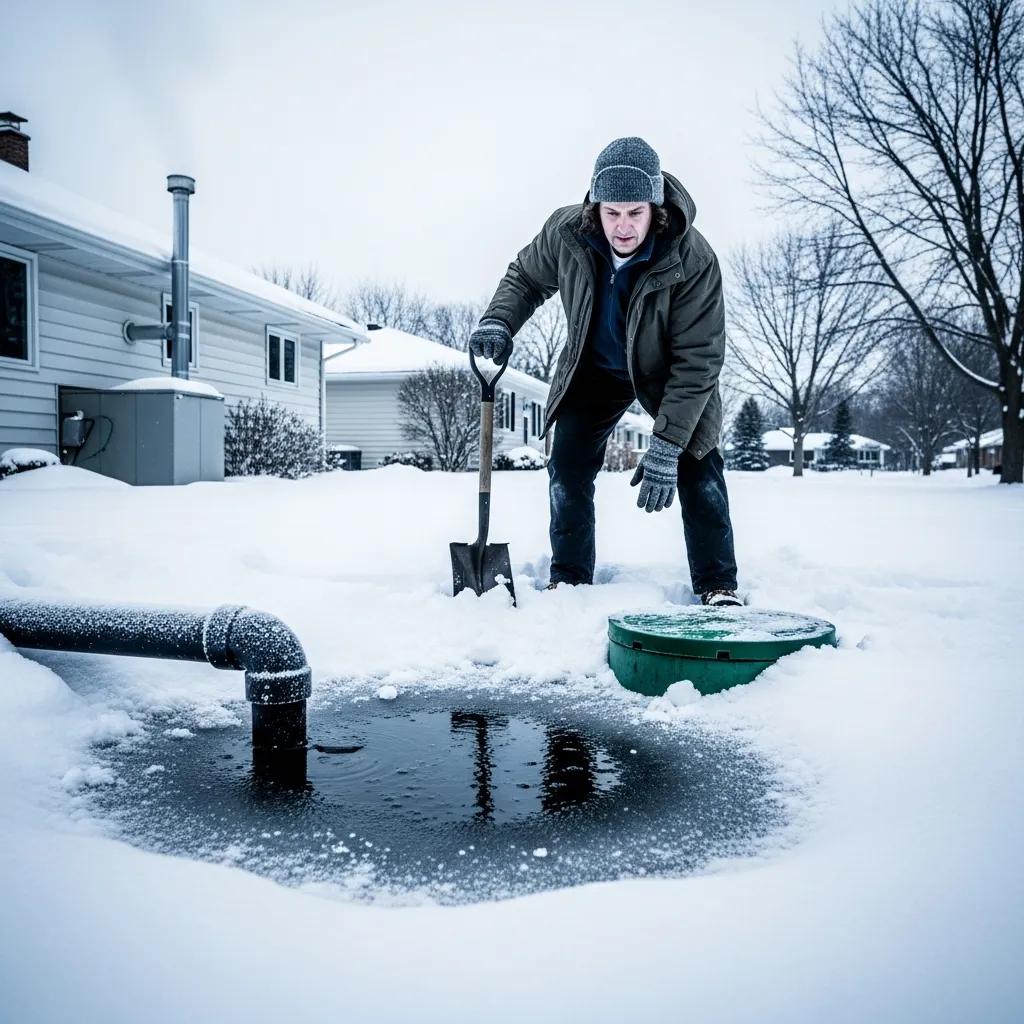Buying a home with a septic system in Acworth, GA comes with unique considerations that can significantly impact your long-term comfort and maintenance responsibilities. Unlike homes connected to a municipal sewer system, septic systems require regular care and a clear understanding of how they function.
From evaluating the system’s condition during the inspection process to understanding local regulations and maintenance needs, being informed is key to avoiding costly surprises. In this guide, we’ll share essential insights for homebuyers in Acworth looking at properties with septic systems, helping you make a confident, well-informed decision as you move toward homeownership.
Buying a Home with a Septic System? Read This First
Understanding Septic Systems in Acworth, GA
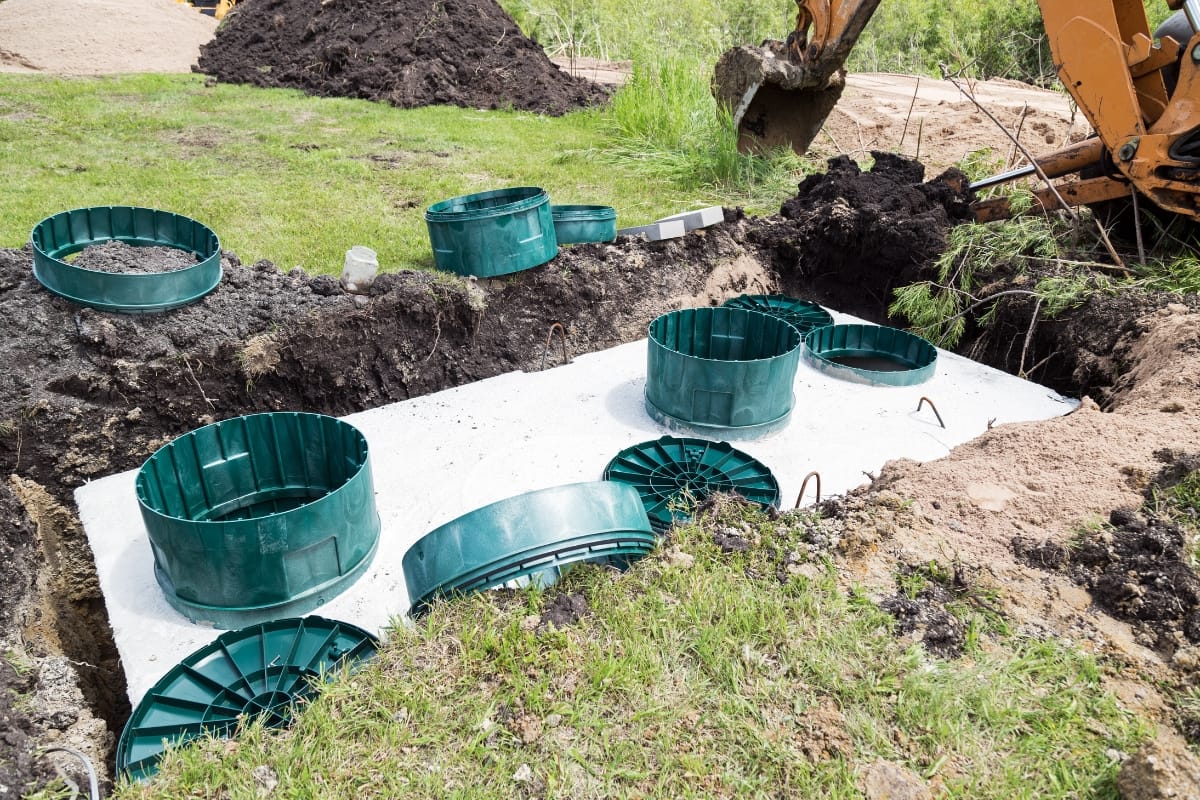
In many parts of Acworth, GA, municipal sewer service is not available, especially in rural or older neighborhoods. As a result, many homes use septic systems to manage household wastewater. A septic system works by collecting wastewater in an underground tank. Solids settle to the bottom, oils rise to the top, and the liquid in the middle flows into a drainfield. There, it is naturally filtered through the soil.
If you are buying or already own a home with a septic system, it is important to understand how local conditions in Acworth affect how the system works. The region has clay-heavy soil, which drains more slowly than sandy or loamy soil. Because of this, some properties may require a larger or specially designed drain field to ensure proper filtration and avoid backups.
Cobb County also has specific guidelines for system design and installation. Permits are required for new systems or major repairs, and inspections may be needed before a property sale. These steps help make sure the system is working properly and not putting nearby water sources at risk.
Proper maintenance is key. Septic systems should be pumped every three to five years, depending on household size and usage. Avoid flushing non-biodegradable items or pouring grease down the drain. Regular upkeep protects your investment and keeps the system running efficiently.
In short, septic systems are a common and reliable solution in Acworth when properly managed. Knowing how they work and staying on top of maintenance can save you money and help avoid problems down the road. Understanding local requirements and soil conditions is the first step in making sure your system lasts for years to come.
Importance of Septic System Inspections

If you are considering buying a home with a septic system, a full inspection should be one of your top priorities before closing the deal. A septic inspection goes beyond what a general home inspection covers. It checks the condition of the tank, the level of sludge and scum, and the functionality of the drain field, and looks for signs of wear or failure.
Licensed septic professionals use specific tools to measure how full the tank is and whether it needs to be pumped. They also inspect the tank for cracks or leaks and test the drain field to see if it is properly absorbing water. If a system is overdue for maintenance or shows signs of damage, that is something you want to know before you commit to the purchase.
Skipping this inspection is a gamble. Septic repairs can be expensive, especially if the drain field is failing or the tank needs to be replaced. These problems may not show obvious signs right away but can lead to slow drains, foul odors, or even raw sewage backups if left unaddressed.
A detailed inspection report gives you more than just peace of mind. It can also serve as a tool in negotiations. If the inspection uncovers a major issue, you may be able to negotiate the sale price or request that the seller handle the repairs before closing. In short, a septic inspection is a smart move that can help you avoid surprise expenses and ensure the system is safe and functional. It is one of the best ways to protect yourself when buying a home with a septic system.
Signs of Septic System Problems to Look Out For
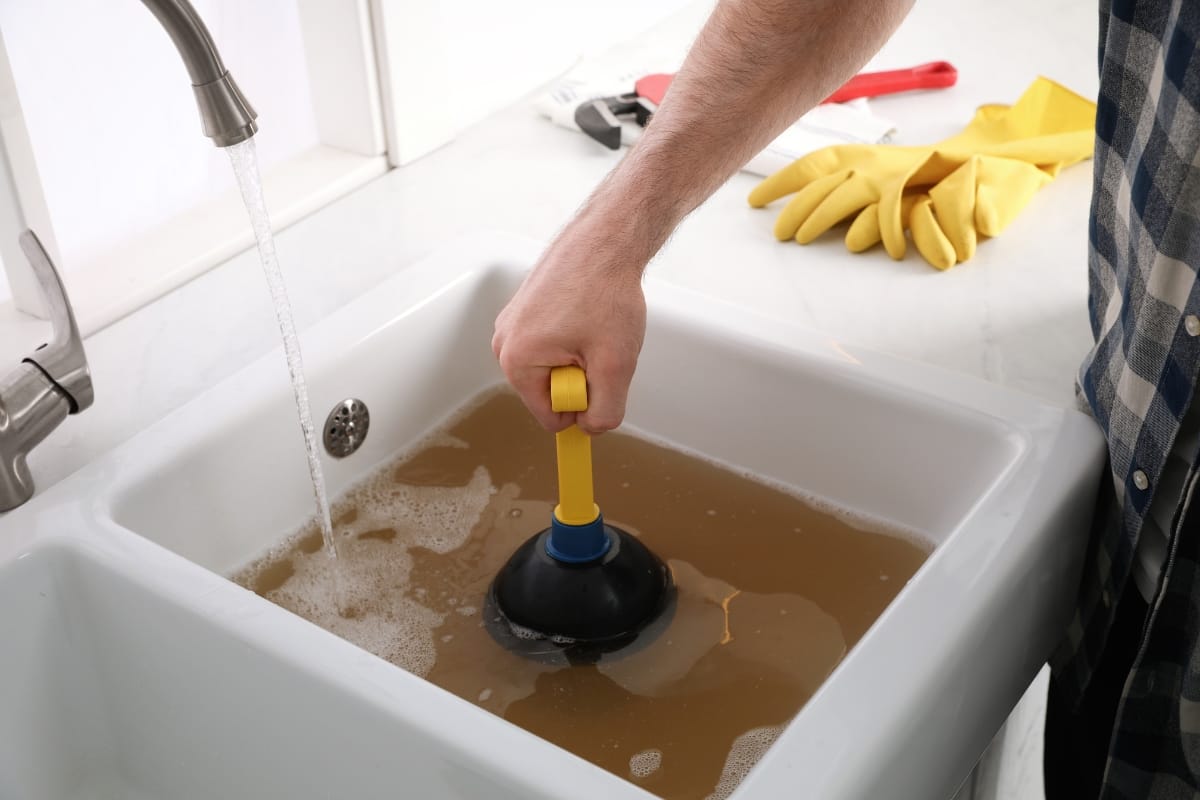
Catching septic system issues early can help prevent costly repairs and long-term damage. Whether you already own a home or are in the process of buying one, knowing what to look for can make a big difference.
Here are some common warning signs of septic trouble:
- Foul Odors: A strong sewage smell near the yard, basement, or drains often points to a leak, a full tank, or a backup in the system.
- Pooling Water: Standing water around the drainfield or near the tank, especially in dry weather, may signal oversaturation or a failed drainfield.
- Slow Drains: If sinks, tubs, and toilets are draining slowly throughout the house, it could mean the tank is full or there is a blockage somewhere in the system.
- Unusually Green Grass: Lush, bright green patches over the drainfield area may seem like a good thing, but they can be a sign that wastewater is surfacing rather than being absorbed properly.
- Gurgling Sounds: Noises coming from drains or toilets when water is running elsewhere in the house can be an early sign of backup or ventilation issues in the septic system.
When buying a home with a septic system, noticing any of these signs should prompt a closer inspection. These red flags could affect the value of the home or signal the need for immediate maintenance.
Addressing potential problems early on can save you from more serious and expensive issues later. A professional septic inspection is always a smart move when these symptoms show up, helping you protect your investment and avoid surprises after move-in.
Maintenance Tips for a Septic System
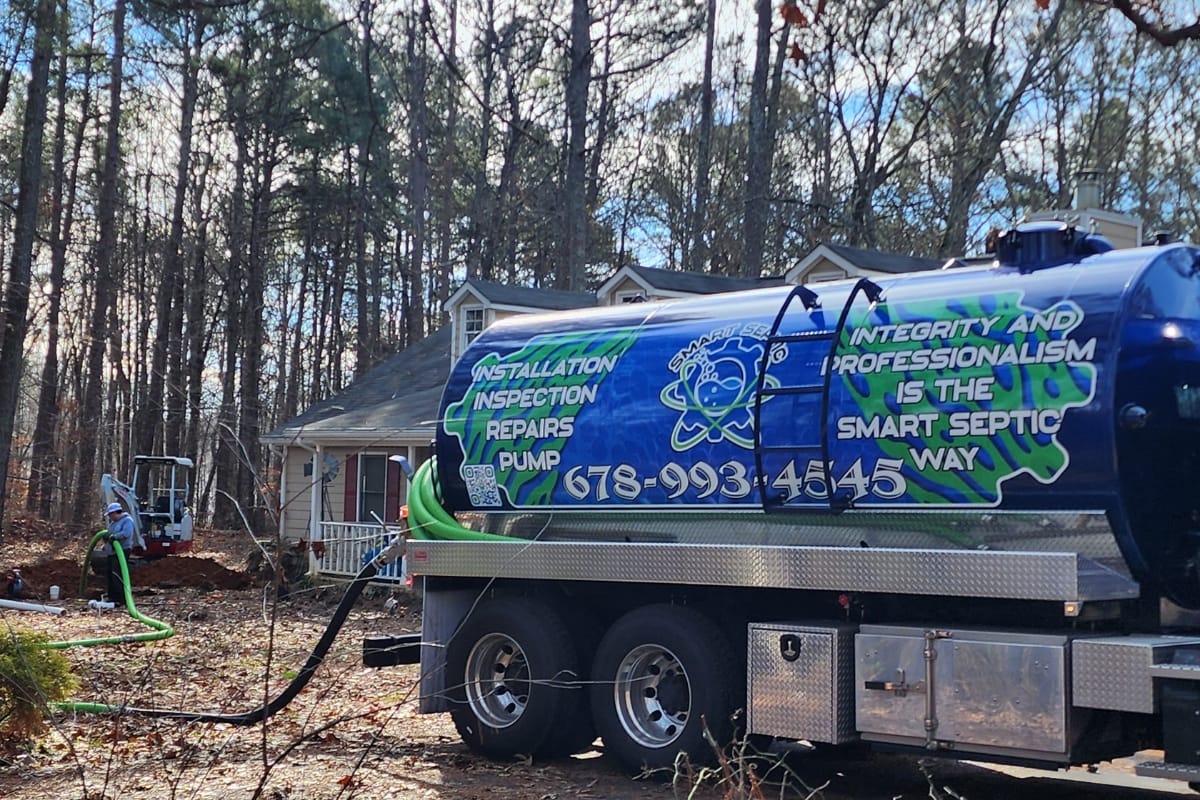
Regular maintenance is the key to keeping your septic system working properly for years. With a few simple habits, you can avoid expensive repairs and extend the life of the system.
Here are the basic tasks every homeowner should follow:
- Schedule Regular Pumping: Every three to five years, have a professional pump your tank to remove built-up solids. The exact timing depends on household size and usage, but skipping this step can lead to clogs and backups.
- Watch Water Usage: Try not to overload your system with too much water at once. Spread out laundry and dishwasher loads, and fix any leaky faucets or running toilets. Too much water can flood the system and cause solids to flow into the drainfield.
- Be Careful What You Flush: Avoid flushing grease, wipes, paper towels, feminine products, coffee grounds, or strong chemicals. These can block pipes and disrupt the natural bacteria that help break down waste in the tank.
- Protect the Drain field: Keep vehicles, sheds, and heavy equipment off the drainfield area. Compacted soil can damage pipes and make it harder for wastewater to filter properly.
- Get Routine Inspections: Have a licensed professional inspect the system every few years. They will check tank levels, clean filters, and inspect key components like baffles and distribution boxes to catch problems early.
Following these steps helps your system run efficiently and protects your home from water damage, odors, and environmental issues. A well-maintained septic system is not only better for your wallet but also for the safety of your property and the surrounding area. Taking small steps now can prevent major problems later.
Differences Between Septic Systems and Public Sewer Systems
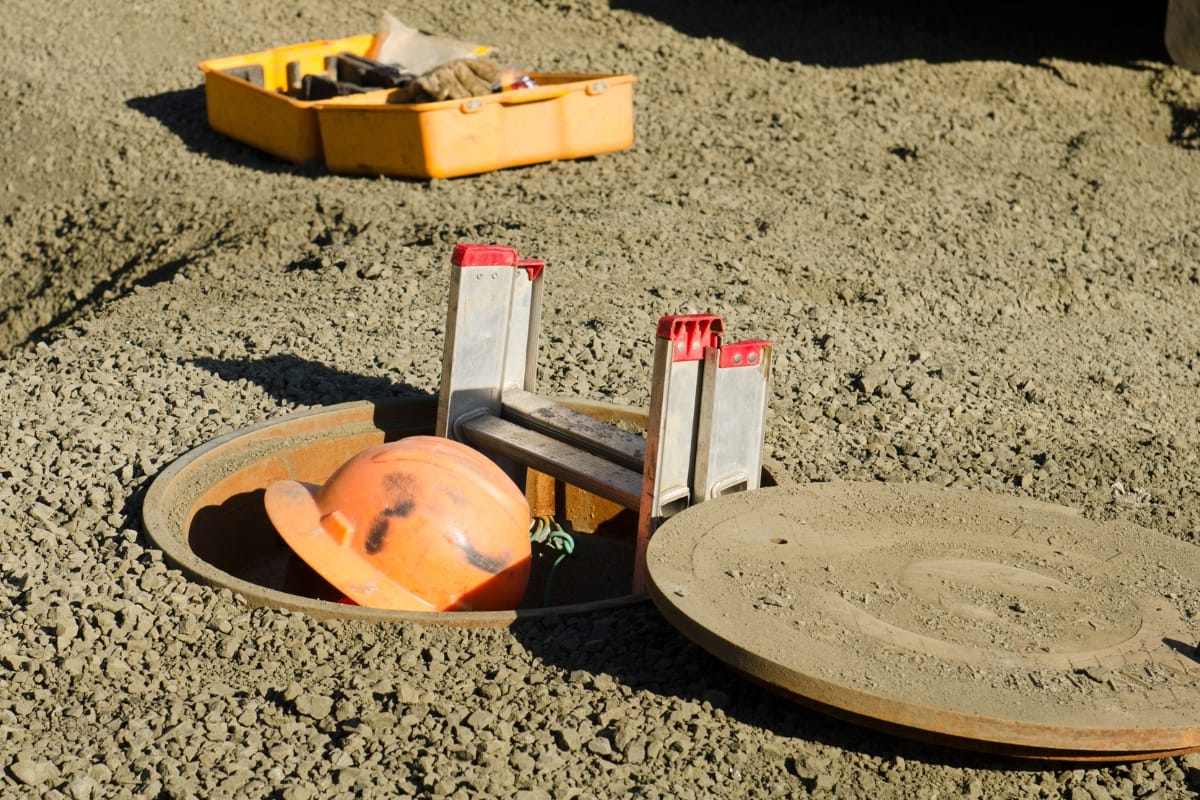
Septic systems and public sewer systems both manage household wastewater, but they do so in very different ways. Understanding the differences can help homeowners make informed decisions about maintenance, cost, and long-term responsibilities.
A septic system is an on-site solution. Wastewater from the home flows into a buried tank, where solids settle and liquid is gradually dispersed through a drainfield. A public sewer system sends wastewater through underground pipes to a city-run treatment plant.
- Installation and Maintenance Costs: Septic systems typically cost between $3,000 and $10,000 to install in Acworth, depending on site conditions. Maintenance includes regular pumping every few years. In contrast, connecting to a public sewer system may involve a tap fee upfront, followed by monthly service charges. The homeowner is not responsible for repairs to the public system.
- Ownership and Responsibility: With a septic system, the homeowner is fully responsible for upkeep, repairs, and inspection. A malfunction can lead to expensive fixes and health risks. Public sewers are managed by local authorities, which means maintenance and emergencies are handled by the city.
- Reliability: Public sewer systems can generally handle high volumes of waste and are less likely to be impacted by daily household use. However, they can sometimes overflow or back up during heavy rainfall. Septic systems work well when properly maintained but are more vulnerable to problems from poor usage, such as flushing inappropriate items or overwhelming the system with too much water.
- Environmental Considerations: Municipal treatment plants are highly regulated and usually meet strict water quality standards. Septic systems use natural soil filtration, which can be effective but also carries a risk of groundwater contamination if the system fails.
Each option has pros and cons. The choice often depends on location, costs, and personal preference.
Costs Associated with Owning a Home with a Septic System

Owning a home with a septic system brings some unique costs that differ from homes connected to public sewer systems. Understanding these expenses upfront can help you plan for both short-term needs and long-term maintenance.
One of the first costs to expect is a septic system inspection before buying the home. In Acworth, this typically ranges from $300 to $500. The inspection might reveal issues such as needed repairs or upgrades. If the system is outdated or not up to Cobb County codes, replacement costs can fall between $7,000 and $15,000 depending on the size of the system and the condition of the soil.
Ongoing maintenance is also necessary. Most tanks need to be pumped every three to five years, which usually costs $250 to $500 per visit. Annual or biannual inspections are recommended and may run $150 to $300. These checkups help catch small issues early, reducing the risk of expensive failures later.
Drainfield repairs can be one of the more expensive aspects of septic ownership. If soil replacement or new piping is needed, the cost can range from $2,000 to over $10,000 depending on the severity of the problem and the size of the area affected. On the upside, homes with septic systems avoid monthly sewer bills, which often cost between $50 and $100. That savings can help offset maintenance expenses over time.
Budgeting for septic system ownership means thinking beyond the purchase price. Including inspection, maintenance, and potential repair costs in your financial plan gives you a more accurate picture of what it takes to own and maintain a home with a septic system.
Environmental Impact of Septic Systems
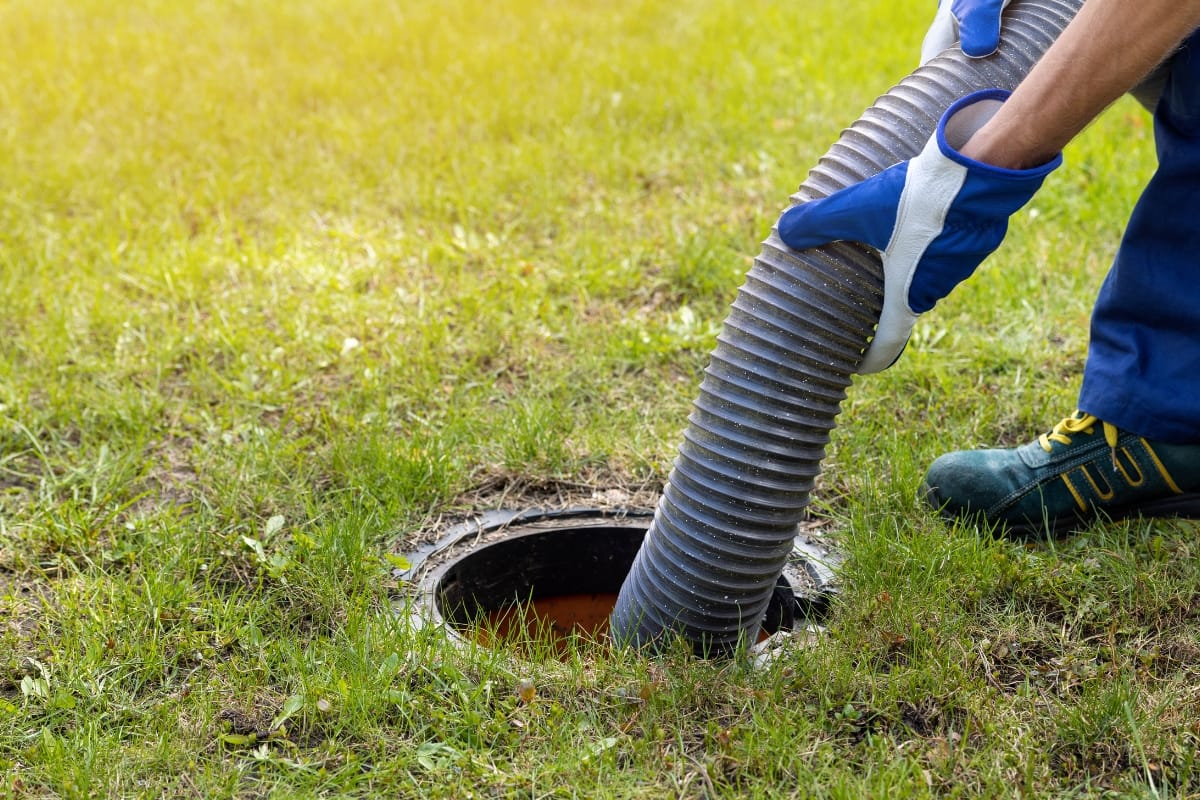
When properly maintained, septic systems can be an effective and environmentally responsible way to manage household wastewater. They rely on natural filtration through soil to treat and clean the water before it returns to the groundwater supply. This process can work well and help reduce the need for centralized treatment infrastructure.
However, problems arise when systems are neglected or poorly designed. A failing septic system can leak bacteria, nitrates, and phosphates into the soil, which can then reach nearby streams, lakes, or groundwater. These pollutants can harm water quality, affect wildlife, and contribute to algae blooms and low oxygen levels in local waterways. In a community like Acworth, where some neighborhoods are close to lakes and streams, the impact of a faulty system can extend beyond just the property owner. This makes regular maintenance and responsible use especially important.
Homeowners can reduce environmental risks by following a few simple practices. Use phosphate-free detergents and cleaning products to limit the introduction of harmful chemicals into the system. Be mindful of water usage to avoid overwhelming the system, especially during heavy appliance use. Overloading the tank can cause solids to enter the drain field, reducing its effectiveness.
It is also important to protect the drainfield area. Avoid planting trees or deep-rooted shrubs nearby, as their roots can damage pipes. Keep vehicles and heavy equipment off the drainfield to prevent soil compaction. Grass or other shallow-rooted plants are the best options for covering the area.
By staying on top of maintenance and making environmentally conscious choices, homeowners help protect local water resources and preserve the health of Acworth’s natural environment. Responsible septic ownership plays a quiet but critical role in long-term environmental health.
Key Considerations for Buying a Home with a Septic System
Navigating the ins and outs of a septic system doesn’t have to feel daunting—understanding site evaluations, maintenance schedules, and regulatory requirements is key to protecting your investment and your family’s health. At Smart Septic Pros, we’ve helped countless homebuyers in Acworth make informed decisions, from pre-purchase inspections to ongoing septic maintenance plans that keep systems running smoothly. Ready to move forward with confidence? Call us today at 678-993-4545 or visit our website and fill out our contact form to get personalized guidance. Let Smart Septic Pros ensure your new home’s septic system is one less thing to worry about.
